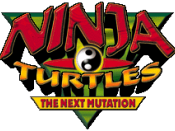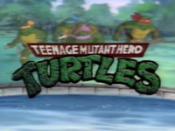I think it is common belief to say violence on television is very impressionable on its young viewers. Of course, to ask a child this imposing question would result in a stern denial; as I did when I received such a preposterous inquiry as a young one. To believe that any outside input as such that had an affect on the way I saw to conduct myself was ridiculous to me. I was an individual. Nothing but me could knowingly change my intentions. But here I am now, years later thinking (even though I dread the notion of it) that it is true some people take in the chaos they see on screen and reflect it in the way they act, even my-unimpressionable-self.
In Diane BradyÃÂs cover story over TVÃÂs influence of behavior a preschool teacher, Terry Harrison, is quoted saying ÃÂÃÂ that the sound of a three-year-old boy yelling ÃÂCowabungaÃÂ is a war cry that can unleash chaos in the classroom.
ÃÂSuddenly, we are faced with a little gang of Ninjas trying to kick each other in the faceÃÂ ÃÂÃÂ ( 1 ). I was a Teenage Ninja Turtle fanatic. I was in the fan club. I always pretended I was Donatello because both our names started with the same letter, naturally. Though I secretly enjoyed LeonardoÃÂs double sword wielding fighting style better, but I settled with DonÃÂs stick. As I look back, I realize what a violent kid I actually was. My daycare years, my friends and I would spend having daily wars with the older kids. Not pretend wars but actual fights and skirmishes between the two gangs of hooligans. I can not even begin to count how many times I jump kicked other little kids. With my jump kicking people left and right and spewing out obscenities I did not understand I found myself spending a lot of time in the corner. So, knowing that, I can no longer claim that my infatuation with the Ninja Turtles and Karate Kids in no way caused me to act out a little as I thought my idols might. I can completely agree with Mary Morrison where Diane Brady quotes her, ÃÂTelevision is not reflecting the world, but the world is starting to reflect televisionÃÂ ( 1 ).
Extended amounts of graphic violence on TV is now worried of the desensitization of the public from actual violence to other people, which many believe causes some to be more violent themselves (ÃÂMedia ViolenceÃÂ 3-4). I believe desensitization can go both ways. I think it can be somewhat helpful in preparing people to deal with the sometimes harshness of reality; where we see violence and it is not so shocking and disturbing as to scar us psychologically. I know I have grown somewhat used to the things that go on in the world. I am not shocked to hear about a shooting at a school or a bomb going off in Israel anymore, from the fact I see it all the time on the news. On the other hand, television violence could so desensitize someone as for that person to lose their grip on the reality of violence, such that they see this over-the-top action on screen and there seems to be no consequences for that action, whatever it may be. Therefore, they may feel to act as they please because they do not see violence as such a bad option.
Television violence has many positive aspects as well. As an example, many people love watching action movies and contact sports. For some, it may even help relieve their own aggravated tensions. While some look to television to escape the dullness of reality at times. I could never begin to imagine how my dad would be from missing a single Tennessee game. Still some like to imagine themselves in the role of the hero/protagonist taking part in these exciting situations that are too ridiculous for their own lives, which is the reason movies are so incredibly popular throughout the world.
Violence as todayÃÂs entertainment can affect those who are susceptible to such things, as well as those who think they are not. But it can affect them in both negative and positive ways. Some can take it in and realize the seriousness of violence, or some can receive it on a lighter note and reflect it in their own actions in a negative aspect. There will always be some that take it the wrong way since there will always be entertainment, and where there is entertainment, there will be violence somewhere. Pediatrics says it best where it wrote, ÃÂIt is not violence itself but the context in which it is portrayed that can make the difference between learning about violence and learning to be violentÃÂ (ÃÂMedia ViolenceÃÂ 3).
BibliographyBrady, Diane. ÃÂThe Power of ÃÂCowabungaÃÂ: Does TV Violence Influence Behavior?ÃÂ MacleanÃÂs 7 Dec. 1992: v.105 50-51. Infotrac Expanded Academic ASAP. Tennessee Electronic Library. Pellissippi State Technical Community Coll. Lib., Knoxville. 3 Oct. 2002 http://web1.infotrac.galegroup.com/itw/ÃÂ 012191&dyn=63!ar_fmt?sw_aep=tel_a_psÃÂMedia ViolenceÃÂ. Pediatrics Nov. 2001: v.108 1222-1225. Infotrac Expanded Academic ASAP. Tennessee Electronic Library. Pellissippi State Technical Community Coll. Lib., Knoxville. 3 Oct. 2002 http://web1.infotrac.galegroup.com/itw/ÃÂ 221954&dyn=76!ar_fmt?sw_aep=tel_a_ps





